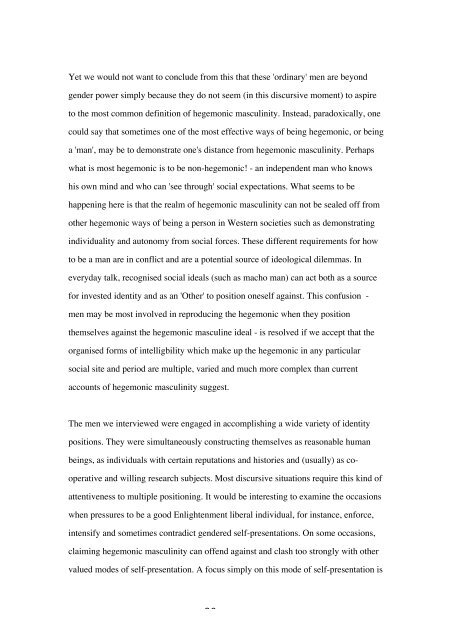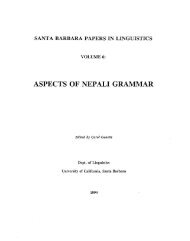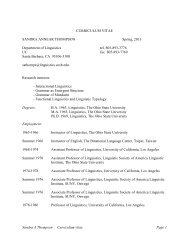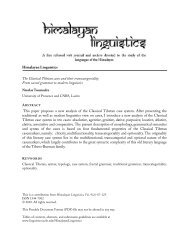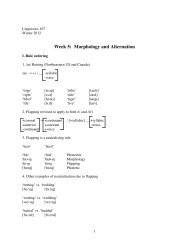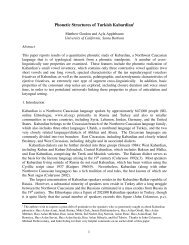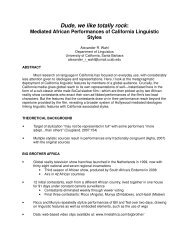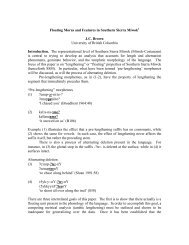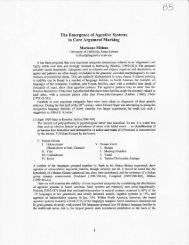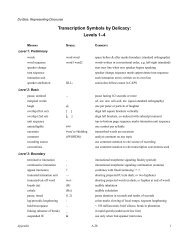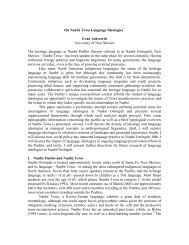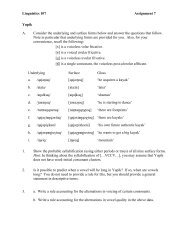Negotiating Hegemonic Masculinity: Imaginary ... - UCSB Linguistics
Negotiating Hegemonic Masculinity: Imaginary ... - UCSB Linguistics
Negotiating Hegemonic Masculinity: Imaginary ... - UCSB Linguistics
You also want an ePaper? Increase the reach of your titles
YUMPU automatically turns print PDFs into web optimized ePapers that Google loves.
Yet we would not want to conclude from this that these 'ordinary' men are beyond<br />
gender power simply because they do not seem (in this discursive moment) to aspire<br />
to the most common definition of hegemonic masculinity. Instead, paradoxically, one<br />
could say that sometimes one of the most effective ways of being hegemonic, or being<br />
a 'man', may be to demonstrate one's distance from hegemonic masculinity. Perhaps<br />
what is most hegemonic is to be non-hegemonic! - an independent man who knows<br />
his own mind and who can 'see through' social expectations. What seems to be<br />
happening here is that the realm of hegemonic masculinity can not be sealed off from<br />
other hegemonic ways of being a person in Western societies such as demonstrating<br />
individuality and autonomy from social forces. These different requirements for how<br />
to be a man are in conflict and are a potential source of ideological dilemmas. In<br />
everyday talk, recognised social ideals (such as macho man) can act both as a source<br />
for invested identity and as an 'Other' to position oneself against. This confusion -<br />
men may be most involved in reproducing the hegemonic when they position<br />
themselves against the hegemonic masculine ideal - is resolved if we accept that the<br />
organised forms of intelligbility which make up the hegemonic in any particular<br />
social site and period are multiple, varied and much more complex than current<br />
accounts of hegemonic masculinity suggest.<br />
The men we interviewed were engaged in accomplishing a wide variety of identity<br />
positions. They were simultaneously constructing themselves as reasonable human<br />
beings, as individuals with certain reputations and histories and (usually) as co-<br />
operative and willing research subjects. Most discursive situations require this kind of<br />
attentiveness to multiple positioning. It would be interesting to examine the occasions<br />
when pressures to be a good Enlightenment liberal individual, for instance, enforce,<br />
intensify and sometimes contradict gendered self-presentations. On some occasions,<br />
claiming hegemonic masculinity can offend against and clash too strongly with other<br />
valued modes of self-presentation. A focus simply on this mode of self-presentation is<br />
30


